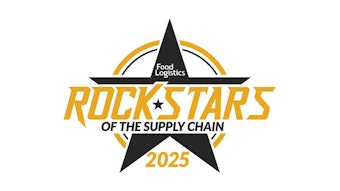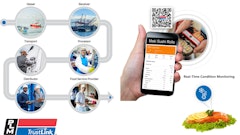
The importance of food chain tracking is now amplified with the approaching implementation of the Food Safety Modernization Act (FSMA). The FSMA’s Rule 204 (d) requires enhanced traceability requirements for organizations and mandates the creation of a Food Traceability List (FTL). This measure calls for enhanced traceability requirements, placing greater pressure on processors to ensure quality and safety in their products. By January 2026, food manufacturers must maintain compliance with section 204 (d), pointing them to explore and implement innovative technologies that can integrate information, provide advanced analytics and ensure compliance.
The latest FSMA regulations require that organizations provide records to the Food & Drug Administration (FDA) within 24 hours of request and maintain records on hand for up to two years. These regulations also require the establishment of stringent tracking of food products throughout all stages of the supply chain, from production to consumption. Stakeholders throughout the food processing cycle are responsible for maintaining records containing key data elements (KDEs) associated with critical tracking events (CTEs). CTEs serve as critical checkpoints throughout the food supply chain that can include receiving, manufacturing, repackaging and exporting these products. These standards mandate the accurate tracking and tracing of food products to ensure safety and prevent contamination.
Leveraging technology for FSMA compliance
Given the essential provisions outlined above, food manufacturers must implement a strategic approach to achieve full compliance with FSMA Section 204(d). A crucial component of this strategy involves utilizing a comprehensive system that can effectively connect food manufacturing systems and supply chain management capabilities. This real-time tracking system will provide a strong foundation for compliance efforts, allowing for rapid identification and resolution of critical issues, such as contamination or quality defects.
· Manufacturing execution system (MES). An MES collects and analyzes real-time data from production processes, providing insights into product quality, efficiency, and compliance. This data can be used to track products through the manufacturing process, identify potential issues, and ensure adherence to regulatory standards.
· Enterprise resource planning (ERP). An ERP system manages various business functions, including procurement, production, sales, and finance. By integrating with an MES, an ERP can provide a holistic view of the supply chain, enabling manufacturers to track products from raw material sourcing to final delivery.
· Quality management system (QMS). A QMS helps organizations ensure product quality and compliance with regulations. By integrating with an MES and ERP, a QMS can facilitate quality control processes, track product attributes, and generate reports for regulatory compliance.
To achieve comprehensive traceability, food manufacturers must leverage a combination of technological and organizational strategies. Advanced manufacturing, supply chain and enterprise technology connects and identifies potential concerns throughout the food chain. While technology plays a crucial role in traceability, it’s equally important to focus on the systems and organizational processes within facilities. By optimizing these elements, food manufacturers can enhance their ability to track products effectively and ensure compliance with FSMA’s Rule 204 (d). For example, the following organizational strategies are essential for ensuring optimal processing and distributing of food products:
· One up, one down traceability. To ensure comprehensive traceability, food manufacturers must establish a 'one-up, one-down' system within their facilities. This means that each product can be traced back to its specific supplier and forward to its intended customer. By implementing this approach, manufacturers can enhance accountability, increase transparency, and rapidly identify and address potential food safety issues.
· Single source of truth. To establish a comprehensive traceability system, food manufacturers must implement a centralized platform that serves as a single source of reliable information for all stakeholders and auditors. This platform should consolidate data from various sources, including production records, quality assurance documentation, and relevant regulatory information.
· Change management. Effective change management requires providing thorough training to employees on new procedures and technologies. Additionally, it is essential to foster open communication channels to address any concerns or challenges that may arise during the implementation process.
Beyond technology, effective FSMA compliance requires a strong organizational foundation. This includes developing clear policies and procedures, ensuring adequate staffing and resources, and fostering a culture of quality and safety. Combining technological advancements with robust organizational practices allows food manufacturers to not only meet regulatory requirements but also improve their overall business performance.
The benefits of FSMA compliance: A competitive advantage
As organizations navigate the complexities of FSMA compliance within the food and beverage industry, the strategic adoption of advanced technologies and strategies is not just a regulatory necessity but a competitive advantage. Real-time tracking, quality monitoring and enhanced reporting mechanisms can significantly improve your operations. By embracing these innovations, organizations can streamline processes, enhance transparency and establish a stronger foundation that ensures compliance and business growth.


























